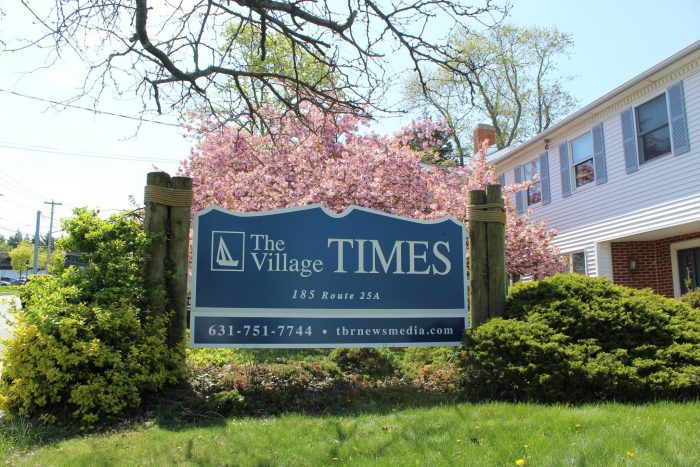Letters to the Editor: August 1, 2024
Unjustified dismantlement of West Meadow Beach cottages
I am writing in response to last week’s article concerning the new West Meadow Beach sign which memorializes the cottages that once stood there [“New West Meadow Beach sign evokes old controversy,” The Village Times Herald, July 25]. Like the sign, the article fails to reflect the more nuanced story of the West Meadow Beach cottages and their significance to our community. As someone deeply connected to this community, I must address the misrepresentations and the devastating loss we have suffered.
Steve Englebright [D-Setauket], the former state assemblyman [and current county legislator], has shown himself to be a disgrace. Even if his story from his 20s about landing on the beach and being chased away were true, his relentless pursuit to remove the beach cottages was an abuse of his office. Englebright’s personal crusade and the narrative he and his associates crafted used circumstantial evidence to paint a false picture of a community that I knew intimately.
The beach cottages were not the domain of a privileged few but a bucolic community of families who created memories and contributed to the fabric of Stony Brook. Englebright’s claim that “most of the people of Brookhaven Town were denied access to their own public land” is simply untrue. Instead of addressing a genuine community concern, he pursued a personal agenda with the help of a few local activists who exploited his political influence to achieve an extreme outcome.
Herb Mones, of the West Meadow Beach Advisory Committee and one of the privileged homeowners behind West Meadow Creek, pursued a hateful agenda rather than working with the community on solutions. His group started the first legal challenges against the cottages in 1991, resulting in rulings that public parkland didn’t belong to private interests. This act has torn a hole in our marvelous town and demonstrated a cruel use of legislation to destroy a special place for so many. Rather than seeking an alternative zoning plan to balance access and preservation, Englebright and his cohorts chose destruction.
Today, the strip of land where the cottages once stood is a barren wasteland, neglected and unprotected. The community that once thrived there is gone, and the town is poorer for it.
Englebright’s defeat from his Assembly seat is a small consolation, but he should be further removed from any position of power. His version of events starkly contrasts with the experiences of many other town residents. My stepfather, for instance, was welcomed and rescued by the cottage community when his boat ran ashore. Similarly, I witnessed my late father coming to the aid of a pilot who crashed his lightweight aircraft on the beach. We welcomed the pilot into our home, shared stories, and my father helped him repair his aircraft.
Englebright’s defensive claims and narrative paints a very different picture than The New York Times story from 2004 [www.nytimes.com/2004/06/27/nyregion/long-island-journal-cottages-at-west-meadow-beach-face-end.html] reflecting a community of caring residents who became legislative victims. Nancy Solomon, a folklorist and executive director of Long Island Traditions, rightly pointed out that the bungalows reflected local architectural tradition and that tearing them down was a loss of history. George Barber, president of the Brookhaven Bathing Association, feared that the removal of the cottages would lead to the beach becoming a garbage dump, which we now see happening.
If there is to be a second sign, it should inform the community of Englebright’s abuse of office and the destruction of a cherished treasure of the Three Villages. He and his cronies should be ashamed of themselves, and their actions will not be forgotten.
Jen Schaedel, Stony Brook
Editor’s note: Our front-page story covered the erection of a new sign at the beach and was not a detailed history of the cottages controversy, which was still discussed.
An alternative view of the West Meadow cottages controversy
Last week’s Village Times Herald article, “New West Meadow Beach sign evokes old controversy,” reminded me that it’s been 19 years since the beach liberation.
Back then, our local newspaper was besieged with letters, including those from owners who promised dire consequences if the cottages were razed — arson, crimes, drugs, pollution and increased traffic. I was one of the people who wrote letters arguing that they must come down, and that the beach be returned to the public.
I thought back to a Brazilian trip where all the beaches were accessible to the public. No hotels or houses were built along the waterfront. A local explained to me that such building was illegal because beaches belong to the public, not the wealthy, would-be homeowners.
Here on Long Island we have a system where, generally, people of means reside on the waterfront and the rest of us share the places that remain public. The West Meadow Beach cottages were one of the worst examples of beachfront land abuse, because it was rented at a discount to those who “voted correctly.” And, yes, I was approached by more than one cottage owner who menacingly advised, “We know where you live.”
A champion of the beach reclamation was Herb Mones who first brought the issue to the taxpayers. And Steve Englebright will always be considered a heroic figure to me because he risked his career against overpowering odds and personal threats in order to do the right thing.
The dire predictions never materialized. No arson, crime, crack houses or increased traffic — just less sewage. It’s a joy seeing people taking that beautiful, serene walk on our peninsula, which is slowly evolving back to its natural state.
Bruce Stasiuk, East Setauket
Horseshoe crabs need our help!
To readers of this newspaper there is good news about horseshoe crabs but your help is needed.
Legislation to prohibit the harvest of horseshoe crabs has passed the New York State Assembly and Senate (A10140/S3185-A) and awaits action by Gov. Kathy Hochul [D].
Please take a moment to urge her to sign the bill into law. You can do this by either:
1. Calling her office at 518-474-8390.
2. Sending a letter of support to:
The Honorable Kathy Hochul
Governor of New York State
New York State Capitol Building
Albany, NY 12224
3. Going to this website: www.governor.ny.gov/content/governor-contact-form and type in a comment in the message box.
We have never been closer to stopping the killing of tens of thousands of horseshoe crabs —NYS regulations allow baymen to kill 150,000 annually for bait — and your voice is needed.
Horseshoe crabs have declined significantly over the past several decades and the Atlantic States Marine Fisheries Commission earlier in 2024 determined that New York’s horseshoe crab fishery is in “poor condition” — the only state along the East Coast with this troubling designation.
This poor condition is borne out by our personal experience: Who over the age of 50 doesn’t remember our bay and harbor bottoms once being filled with these iconic animals? This species, known as a living fossil, plays a vital role in the coastal ecosystem with their eggs being eaten by a number of migratory shorebird species, including the red knot which is protected by the federal Endangered Species Act. Their eggs are eaten by many fish species too and the adults are consumed by sea turtles, also listed and protected in the Endangered Species Act.
There are bait alternatives baymen can use that have proven effective. Over the past 25 years about 3.6 million horseshoe crabs have been killed for bait. It’s time that New York joins our neighboring state Connecticut, which recently enacted a statewide ban on the taking of these living fossils and stops the slaughter. These fascinating animals deserve better. We call on Gov. Hochul to sign the ban into law. It is vital the governor hears from the public by expressing your support for the ban. Please contact Gov. Hochul today!
John Turner
Four Harbors Audubon Society
St. James







